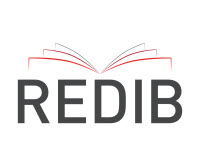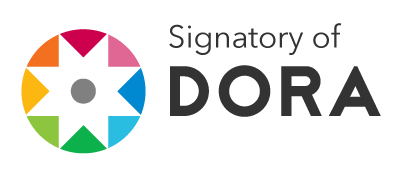Datos que intimidan y algoritmos
Resumen
El aura mística que rodea a los algoritmos, observado en los últimos años, se percibe cada vez más como una molestia que debemos aceptar aunque no nos guste. Los algoritmos tanto siguen siendo elogiados como una panacea, como considerados culpables de la «inmadurez digital» (digitale Unmündigkeit). La discusión en curso sobre los algoritmos se refiere menos a su entidad matemática que a su implementación en tecnología y programas informáticos, a veces considerada como sinónimo de «inteligencia artificial». Sin embargo, el enorme potencial de transformación informativa de los algoritmos y los datos ya es visible en la construcción matemática, como podrá apreciarse en este trabajo.
Descargas
Citas
Bourne, C. P. (1963). Methods of Information Handling. Information Sciences Series. New York: Wiley.
Capurro, R. (2019). Enculturating Algorithms. NanoEthics. 13, 2, 131–37. doi: https://doi.org/10.1007/s11569-019-00340-9. (1 August 2019)
Coy, W (1994). Die Turing-Galaxis. Report of the computer science faculty of the University of Bremen, 3/94, 7–13. Bremen: University of Bremen.
Perez, C. C. (2019). Invisible Women: Exposing Data Bias in a World Designed for Men. New York: Random House.
Illich, I. (1973). Tools for Conviviality. New York: Harper&Row.
Kiermeier, F., Renner, E. (1960). Einsatz der Randlochkarte in der Arbeitskartei (ein Beispiel aus der Milchwissenschaft). Zeitschrift für Lebensmittel-Untersuchung und Forschung, 113, 4, 316–322. doi: https://doi.org/10.1007/BF01353946.
Latour, B. (1990). Technology is society made durable. The Sociological Review, 38, 1_suppl, 103–131. doi: https://doi.org/10.1111/j.1467-954X.1990.tb03350.x.
Lovelace, A. (1842). Notes, In: Babbage, H. P. (Ed.). Sketch of the Analytical Engine by L. F. Menabrea. p. 21–50. New York: Cambridge University Press.
Michie, D. (1961). Trial and Error. In: Barnett, S. A., McLaren, A. (Eds). Science Survey, Part 2, 129–145. Penguin Books Ltd.
Orwat, C. (2020). Risks of Discrimination through the Use of Algorithms. German Federal Anti-Discrimination Agency. Baden-Baden: Nomos. Available at: https://www.antidiskriminierungsstelle.de/SharedDocs/Downloads/EN/publikationen/Studie_en_Diskriminierungsrisiken_durch_Verwendung_von_Algorithmen.pdf?__blob=publicationFile&v=2
Parry, R. (2008). Episteme and techne. In: Zalta, E. N. (Ed.). The Stanford Encyclopedia of Philosophy. (First published Fri Apr 11, 2003; substantive revision Sun Oct 28, 2007). Availlable at: http://plato.stanford.edu/archives/fall2008/entries/episteme-techne/. (Date of access 21.11.2018.)
Pohle, J. (2016). Personal data not found: Personenbezogene Entscheidungen als überfällige Neuausrichtung im Datenschutz. Datenschutz Nachrichten, 39, 14–19.
Turing, A. (1937). On Computable Numbers, with an Application to the Entscheidungsproblem, Proceedings of the London Mathematical Society, 42, 230–265.
Ullrich, S. (2019a). Algorithmen, Daten und Ethik. In: Bendel, O. (Ed). Handbuch Maschinenethik. Wiesbaden: Springer VS. p. 119-144
Ullrich, S. (2019b). Boulevard Digital: Öffentliche Meinungsbildung Der Hypervernetzten Gesellschaft. Wiesbaden: Springer.
UNESCO Institute for Statistics (2020). Pupil-teacher ratio in primary education (headcount basis). (14 September 2020)
Weizenbaum, J. (1976). Computer Power and Human Reason: From Judgement to Calculation. New York: W. H. Freeman.
Zemanek, H. (1991). Das geistige Umfeld der Informationstechnik, Berlin: Springer.
Derechos de autor 2021 Stefan Ullrich

Esta obra está bajo licencia internacional Creative Commons Reconocimiento 4.0.







.jpg)




















